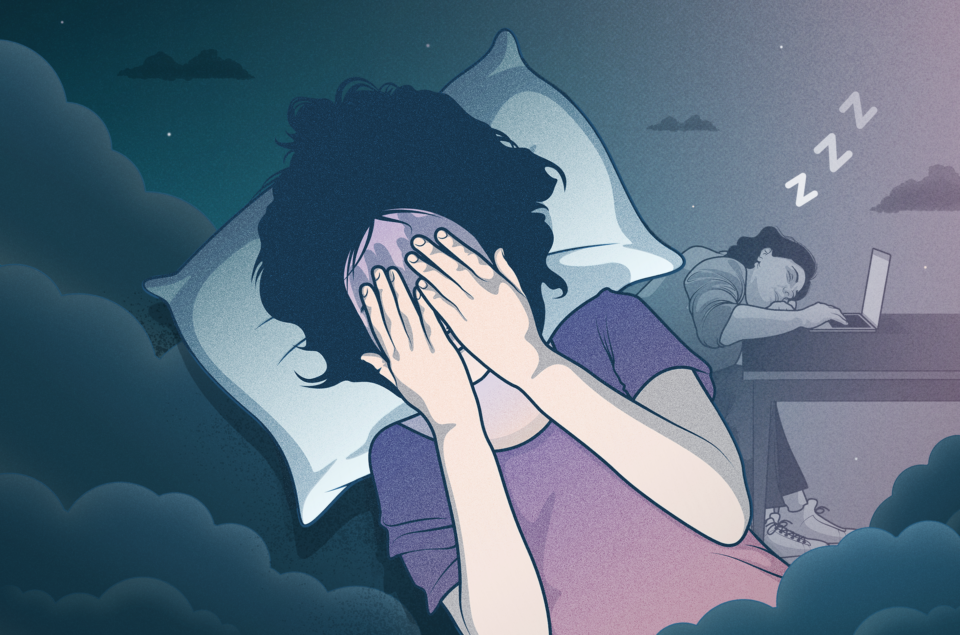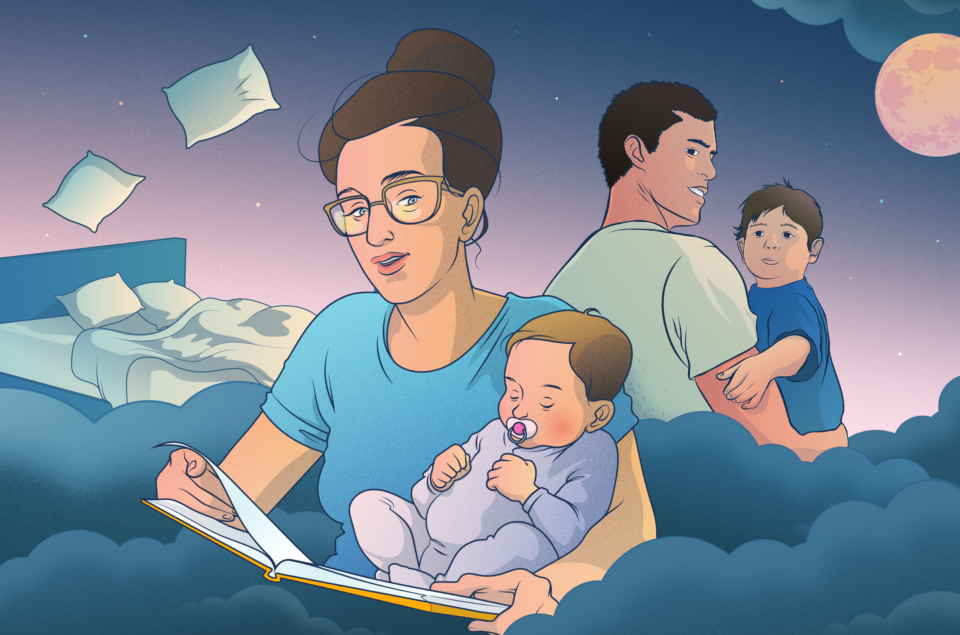Being stuck inside during a period of unemployment or self-quarantine, or even a rainy family holiday, can make you feel like climbing the walls. It can also lead to the kinds of friction and stress that make it hard for you and other family members to get good-quality sleep. So, what can you do to improve your chances of a good night’s sleep? Here are five practical tips.
1. Avoid sensitive subjects just before bed
When you’re drained after what may have been a difficult day, it can feel much harder to let something slide. But, it’s usually a good idea to avoid broaching difficult topics too late in the evening, according to sleep researcher Frida Rångtell, PhD. “The time before bed is ideally when you should try to wind down. So, it’s a good idea to try to avoid anything that could make you upset or angry around then,” says Rångtell. “This can be tricky if you’re in a family with small kids, for example, and you want to wait until they’re asleep to discuss something that’s happened during the day. But try to time that discussion a little earlier in the evening, at least, and not right before bedtime.”
Sometimes, it’s best to simply ‘sleep on it’, as the saying goes. What can seem like very tense and emotional issues at the end of a grinding day often feel more manageable and less pressing after a night’s rest.
2. Free up a bit of time for yourself (and your partner) during the day
Being cooped up inside is difficult – especially if you don’t have a moment to spare for yourself. If it’s possible, see if you can free up a little time during the day to reflect and breathe. If you’re living together with a spouse or partner, try to grant them a bit of breathing space, too – for example, you could offer to take care of all the children for a set period of time to give them a break. Without any quiet moments to reflect, feelings of irritation and stress can easily build up during the day. That’s not a good state of mind to be in when you need to get to sleep. Even if it’s hard to take a full timeout over the course of the day, try periodically to take a moment to relax and focus on your breathing. A simple and useful technique is to slow down your breathing to six breaths per minute. You can also try sleep meditation techniques.
4. Connect with people outside of your “bubble”
Feelings of loneliness can increase anxiety and reduce your quality of sleep. When it isn’t possible to meet up in person, try reaching out to someone over the phone or via a video call if you’re feeling lonely. This can make a big difference to your mood and anxiety levels, as well as the ultimate issue – how well you are sleeping at night. With some creative thinking, you can invite people into your life digitally by doing everyday activities together, such as sharing a meal or a cup of tea with a friend or family member over video chat.
5. Your child’s sleep may also be affected – but there are ways to ease their anxiety too
If you’re facing a change in circumstances such as the loss of a job or a long-term illness as a family, be aware that it may affect your child’s sleep as well. “Even children’s sleep can be disturbed during times of stress and anxiety, for instance, due to an increased risk of night terrors,” says Rångtell. To ease anxious feelings, psychologists suggest trying to find ways to make it easier for children to understand what’s going on and to enhance their resilience. Tried and tested advice includes labeling the problem, teaching your kids simple mindfulness techniques and creating regular routines. “Routines are really important when it comes to sleep,” says Rångtell. “Our bodies like to know when things are going to happen. By priming our minds and bodies for sleep, we make it easier to fall asleep.”
Don’t be too hard on yourself
Spending lots of time cooped up indoors is tough. Adding to that sense of frustration can be the feeling that you have to accomplish a lot or meet certain expectations. “It can be good to adopt a positive outlook, but be kind to yourself,” advises Rångtell. “If there’s a lot going on, it may be a good time to lower the bar a bit in terms of personal expectations. For example, I’ve decided that I won’t start doing household chores after my daughter goes to sleep in the evening, to give myself a chance to wind down before bed. If that means that the dishes pile up a bit in the kitchen some evenings, it’s not the end of the world.”
It’s easy to get caught up in the idea that you have to be on top of everything, but cutting yourself a bit of slack for a while can help lower stress levels and ultimately may enable you to sleep better at night.










